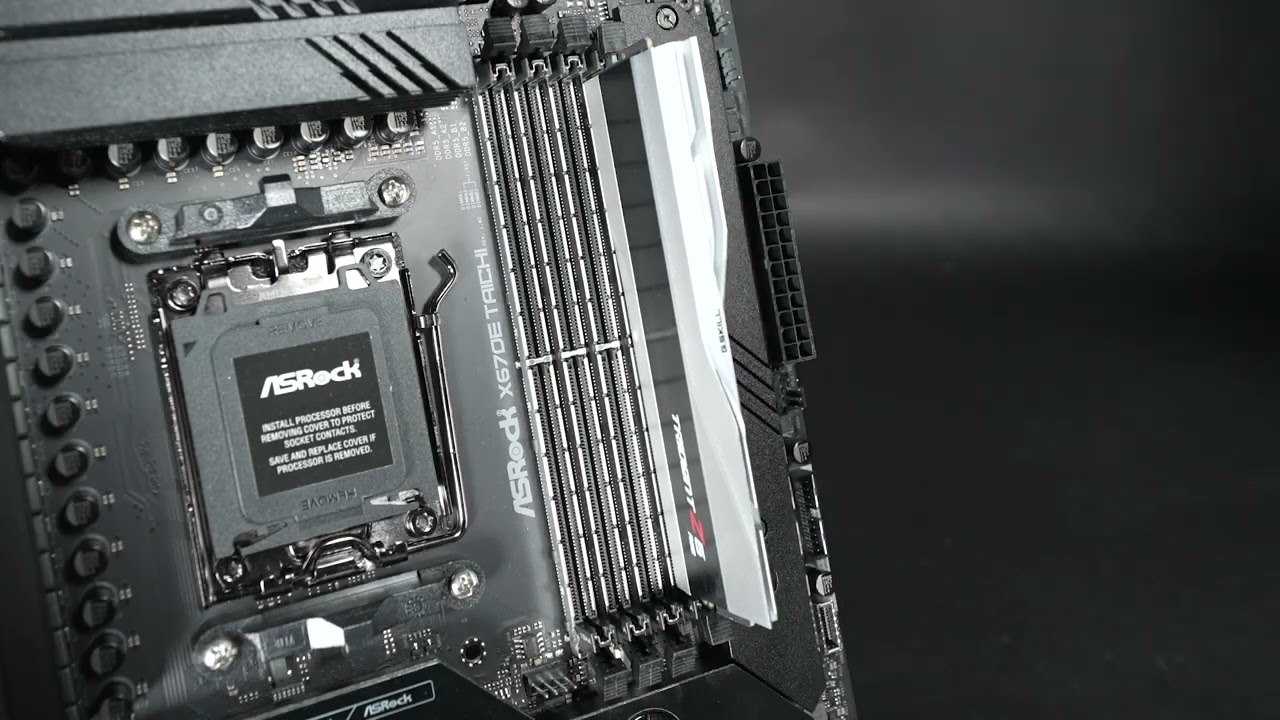A common thread among increasing user reports of failing Ryzen 9000 CPUs was their connection to an ASRock AM5 motherboard. Citing a conversation with the partner at Computex, Tech Yes City has brought to light that ASRock's initial PBO (Precision Boost Overdrive) presets were set too aggressively for initial CPU samples. It is believed these aggressive settings are what ultimately lead to the premature demise of these processors. AMD declined to comment on the story, while ASRock wasn't immediately available.
Earlier this year, reports of failing AMD Ryzen 9000 (Granite Ridge) processors were common on Reddit and other forums. ASRock initially dismissed reports connecting their motherboards to the problem as 'misinformation', all the while supplying a new BIOS to address boot-up and memory compatibility issues. Affected users had no other choice but to RMA their broken CPUs.
According to new details from Tech Yes City, the problem stems from the amperage (current) supplied to the processor under AMD's PBO technology. Precision Boost Overdrive employs an algorithm that dynamically adjusts clock speeds for peak performance, based on factors like temperature, power, current, and workload. The issue is reportedly confined to ASRock's high-end and mid-range boards, as they were tuned far too aggressively for Ryzen 9000 CPUs.
ASRock answered me why Ryzen 9000 CPUs are dying on their Motherboards. - YouTube

ASRock believes their settings for the Electric Design Current (EDC) and Thermal Design Current (TDC) were set overly high for early CPU samples. Does this imply initial silicon was less stable than what we're getting now? It's hard to say. ASRock reportedly ruled out memory incompatibility and excessive SoC voltages as potential causes, the latter of which has a history of wrecking last-generation Ryzen 7000 (Raphael) CPUs.
Liquid coolers and AIOs are said to compound this problem, as they provide greater thermal headroom for PBO. Per the YouTuber, ASRock has fixed this issue with a new BIOS update. While preliminary testing reveals no difference in EDC and TDC values, ASRock has also reportedly reduced "shadow voltages," which are settings not visible to users.
It's still uncertain if the fault lies with AMD or ASRock, as all partners are bound by specific and clear limits set by AMD. Likewise, it is too soon to tell if this fix is truly effective, but we'll know for sure if more cases surface. Questions also emerge from ASRock's media representative initially dismissing user reports as 'misinformation'. It's unlikely to be a coincidence when reports of the same issue point to motherboards from one specific manufacturer. While we've requested further comment on the matter, ASRock should release a public advisory urging users to update their BIOS to prevent potential failures, if that indeed is the necessary fix.
Follow Tom's Hardware on Google News to get our up-to-date news, analysis, and reviews in your feeds. Make sure to click the Follow button.

 6 months ago
75
6 months ago
75








 English (US) ·
English (US) ·